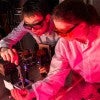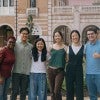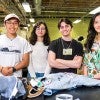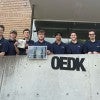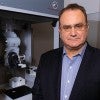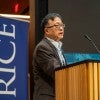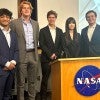
Rice students develop an award-winning adaptive exercise harness for astronauts to use in space
A team of Rice engineering students has designed an innovative space exercise harness that won this year's Technology Collaboration Center’s Wearables Workshop and University Challenge. Their design answered a challenge posed by the HumanWorks Lab and Life Science Labs at NASA and Johnson Space Center.

